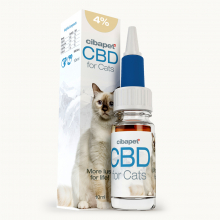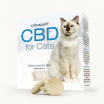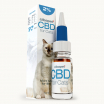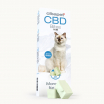Does CBD Oil Make Cats Thirsty?
Published:
CBD oil has become an increasingly popular supplement for humans, providing benefits for issues like pain, anxiety, and inflammation. As more people discover the positive effects of CBD, many have begun to wonder if it could also help their feline companions. One common question is: does CBD oil make cats thirsty?
Contents:
- What Is CBD Oil?
- Does CBD Make Cats Thirsty?
- Benefits of CBD for Cats
- Tips for Giving CBD Oil to Cats
- Frequently Asked Questions
- What causes CBD oil to make cats thirsty?
- How does CBD oil affect a cat's kidneys?
- Is excessive thirst dangerous for cats on CBD oil?
- How much more do cats drink when taking CBD oil?
- Should I give CBD oil to my cat with kidney disease?
- How can I keep my cat hydrated on CBD oil?
- Will my cat drink less water when I stop giving CBD oil?
- How long does CBD-induced thirst last in cats?
- Is my cat drinking a dangerous amount of water on CBD oil?
- Summary
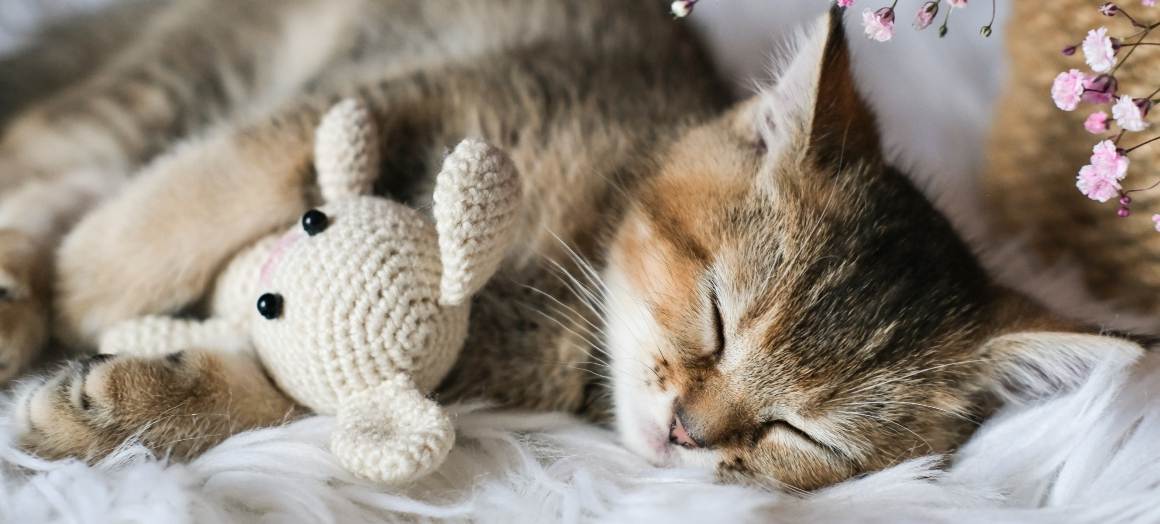
What Is CBD Oil?
CBD, short for cannabidiol, is one of over 100 compounds found in the cannabis plant called cannabinoids. Unlike the cannabinoid THC, CBD is non-psychoactive, so it will not get users or pets high.
CBD interacts with the body's endocannabinoid system, which regulates various processes like pain, mood, sleep, and immune response. By supplementing with CBD, many experience relief from chronic health conditions without significant side effects.
CBD oil can be derived from both hemp and marijuana plants. Hemp-derived CBD contains 0.3% THC or less and is legal in most places. CBD oils can be administered to pets orally by mixing it into food.
Does CBD Make Cats Thirsty?
Now that we know what CBD oil is, does supplementing it make cats thirsty? The short answer is yes, CBD can increase thirst and water intake in cats.
Several studies have shown that CBD stimulates thirst and has a diuretic effect. One reason for this is that CBD inhibits the antidiuretic hormone arginine vasopressin (AVP), which helps the kidneys control fluid balance in the body.
By inhibiting AVP, CBD can cause an increase in urination and thirst. This side effect has been observed in rats and mice given CBD. Though specific studies have not been conducted on cats, it's likely CBD affects cats similarly.
So if you notice your cat drinking more water after giving them CBD oil, this increased thirst is a normal side effect of the CBD. It’s not necessarily a bad thing, as staying hydrated is healthy. But it’s something to be aware of.
Benefits of CBD for Cats
Now you know CBD can make cats thirsty. But does this mean CBD oil is bad for felines? Not at all! While increased thirst is a potential side effect, CBD still has many benefits for cats.
Some of the main potential benefits of CBD for cats include:
- Reduced anxiety and stress
- Relief from chronic pain and inflammation
- Anti-nausea effects
- Appetite stimulation
- Anti-seizure properties
Research on CBD for cats is still in the early stages. But pet owners have reported impressive improvements in anxious or hurting cats given CBD. It appears to be generally safe, with side effects like thirst and drowsiness usually mild.
Always consult your vet before giving CBD to ensure proper dosing and that it won’t interact with any medications your cat is on. Start with low doses to see how your cat responds.
Tips for Giving CBD Oil to Cats
If you want to try CBD oil for your feline friend, here are some tips for doing so effectively and safely:
- Choose high-quality CBD - Not all CBD is created equal. Look for products from reputable companies that contain certified organic hemp and are independently tested for purity and potency. Avoid cheap CBD isolates.
- Start with small doses - Cats are sensitive to CBD, so it’s best to start with just 1-2 mg per dose and gradually increase every few days if needed. Use pet-specific CBD formulas dosed properly for cats.
- Give CBD with food - Mixing CBD oil into your cat's wet or dry food can help improve palatability and absorption compared to directly dosing into the mouth.
- Monitor your cat - Pay attention to how your cat responds after getting CBD. Look for any negative side effects like vomiting or diarrhea. Discontinue use if these occur.
- Provide plenty of water - To prevent dehydration from increased thirst, always ensure your cat has abundant access to fresh, clean drinking water. Adding more water bowls around your home can help.
By following these tips and dosing CBD carefully, you can help minimize any thirst it causes and provide the benefits of CBD to your feline companion. Consult your veterinarian for specific advice about your cat and CBD.
Frequently Asked Questions
What causes CBD oil to make cats thirsty?
CBD oil can make cats thirsty because CBD inhibits the antidiuretic hormone arginine vasopressin (AVP). AVP helps regulate fluid balance in the body. When it is inhibited by CBD, this can cause increased urination and thirst.
How does CBD oil affect a cat's kidneys?
By inhibiting AVP, CBD reduces the kidneys' ability to reabsorb water. This leads to increased urine output. The kidneys have to work harder to remove more water from the bloodstream. While healthy kidneys can handle this fine, CBD could potentially impact cats with kidney disease.
Is excessive thirst dangerous for cats on CBD oil?
Mild-moderate increases in thirst are normal on CBD and not dangerous if the cat is drinking more water too. But extreme thirst where the cat can't drink enough can lead to dehydration. Signs of dehydration include lethargy, dry gums, and loss of skin elasticity. If these occur, discontinue CBD and contact your vet.
How much more do cats drink when taking CBD oil?
There are no specific studies measuring water intake with CBD in cats. In humans, test subjects drank between 300-1200 ml more water per day when taking CBD. Cat owners report their cats drinking noticeably more after starting CBD. Amount varies based on the cat, dose, and CBD product.
Should I give CBD oil to my cat with kidney disease?
Cats with kidney disease are at higher risk of dehydration. Check with your vet first before giving CBD oil. They may recommend lower doses or advise against CBD if your cat's kidneys are severely compromised. Closely monitor water intake and signs of dehydration.
How can I keep my cat hydrated on CBD oil?
- Provide unlimited access to fresh, clean drinking water
- Add extra water bowls around your home
- Consider getting a cat water fountain to encourage drinking
- Feed wet food instead of just dry food
- Monitor water intake and watch for dehydration symptoms
- Adjust CBD dose down if your cat becomes extremely thirsty
Will my cat drink less water when I stop giving CBD oil?
Yes, most cats will drink less water after discontinuing CBD oil. The diuretic effects will diminish. But you should still keep water freely available at all times, whether your cat is on CBD or not. Don't restrict water if stopping CBD.
How long does CBD-induced thirst last in cats?
Increased thirst usually starts within a few hours of taking CBD and can last for 6 hours or more. Effects may persist at lower levels with continued CBD use. Provide ample water continuously when giving CBD, not just right after dosing.
Is my cat drinking a dangerous amount of water on CBD oil?
It's very rare for cats to drink a harmful amount of water due to CBD thirst. Pay attention for extremely frequent urination and huge water intake, which can potentially signal diabetes or kidney issues. Discuss major changes in thirst and urination with your vet.
Summary
In summary, it's normal for CBD oil to make cats thirstier and drink more water. This is due to the effects of CBD on anti-diuretic hormone levels and fluid balance. While increased thirst may be bothersome, proper hydration is healthy.
Ensure your cat always has abundant clean drinking water. Start with conservative CBD doses and monitor your cat's reaction. Consult your vet about using CBD safely and effectively for your feline friend. With prudent use, CBD oil can provide benefits for anxious, hurting, or sick cats while minimizing excessive thirst.









